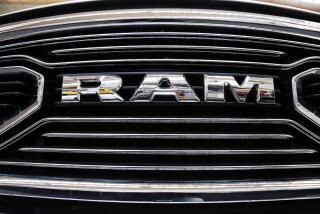Withdrawal of Faulty Artificial Heart Valves Widened
The U.S. Food and Drug Administration said Tuesday that an Irvine pharmaceutical firm has agreed to widen its withdrawal of a controversial large-size artificial heart valve, retrieving all of the devices manufactured since March of 1982 that are not yet implanted in patients.
The firm, Shiley Inc., a division of Pfizer Inc., announced Friday that it was recalling those valves made between March and June of 1982. It said that about 200 of the valves were still on the shelves but that 2,700 already had been implanted in patients.
In addition, the firm has agreed, after negotiations with the FDA, to withdraw from the market similar valves manufactured after June, 1982, according to Dick Chiacchierini, divisional director in the agency’s Center for Devices and Radiological Health in Washington.
Another FDA official, who spoke on condition that he not be named, said the agency pressed for the more extensive action because of the valve’s “bad track record.”
“We didn’t want to take a chance,” he said.
Estimated 12,000 Implants
The FDA officials said they do not know exactly how many additional valves will be subject to withdrawal under the negotiated agreement. But a spokesman for the Public Citizen Health Research Group, a private, nonprofit organization founded by consumer advocate Ralph Nader, estimated that 12,000 have been implanted in heart patients since March, 1982. The spokesman, Allen Greenberg, said the estimate was based on documents obtained by the group from the FDA under the Freedom of Information Act.
Shiley officials refused to comment Tuesday.
The devices at issue are 29-, 31- and 33-millimeter Bjork-Shiley 60-degree Convexo-Concave valves. The mechanisms consist of a cobalt ring, a pyrolytic carbon disk that is held with a cobalt strut. When operating properly the strut allows the disk to flip open and shut, causing blood to pass through the heart.
The failures that resulted in the recall announced Friday were fractures in the cobalt strut. When they occur, the disk is lost in the patient’s body and the heart can no longer pump blood. Chiacchierini said about 100 patient deaths have been linked to Shiley valve failures since 1976. Those deaths involved the failure of valves of all sizes and not just those subject to the recall.
Rate of Failure
In a letter dated Monday and mailed to cardiologists, Shiley said the failure rate is significantly less for valves made after June, 1982. A copy of the letter was obtained by The Times.
The letter, signed by Shiley President Robert M. Curtis, says that valves “made between March, 1982, and June, 1982, have a statistical fracture rate of 11 per 1,000 through three years of implantation. For valves made after June 30, 1982, the reported rate is less than 1.5 per 1,000. There have been no strut fractures reported to Shiley of 60-degree valves made since Aug. 17, 1983.”
However, FDA official Chiacchierini said in a telephone interview that Shiley officials have not proven that the valves produced after June, 1982, are safer than the ones manufactured earlier.
Chiacchierini said Shiley officials came to the FDA on Oct. 2 and proposed a recall of the large, 60-degree Convexo-Concave valves manufactured between March and June, 1982, because of mechanical breakdowns.
The FDA official said company representatives “then attempted to show that the valves manufactured after that date were better.” But he said the FDA was not persuaded that the later products were improved, and the company finally agreed to withdraw all of the similarly sized valves made since March, 1982.
Removal Not Advised
Heart patients with valves already implanted should not have them removed because the dangers of undergoing additional surgery outweigh the risk that the valve will fracture, according to cardiologists.
Dr. Earl Harrison, cardiologist and director of cardiac clinics at Los Angeles County-USC Medical Center, said he is taking no special steps to alert his patients who have Shiley valve implants.
“I don’t think the patients need to be worried about this any more than they should be worried about other aspects of a valve implant,” he said.
Harrison also said it is not feasible for a patient to trade in a recalled valve if it already has been implanted.












